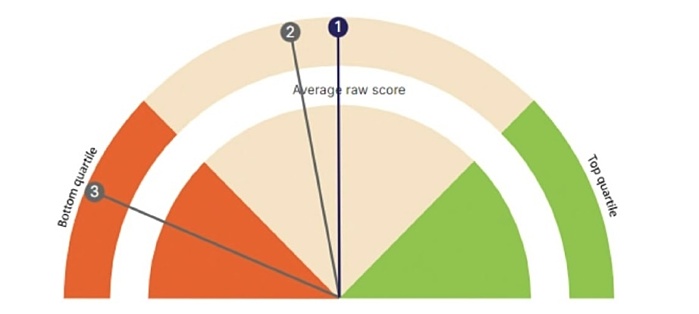Studies of Australian boards reveal that small not-for-profits are falling behind larger organisations on most performance measures.
Board Surveys, part of the Insync group, has assessed more than 500 Australian boards over two decades with its board assessment survey tools. Now, findings provided exclusively to ICDA as part of a new partnership arrangement are set to serve as a wake-up call to the nation’s community directors and committee members.
ICDA and Board Surveys this week launched a new survey and benchmarking tool designed for small not-for-profit boards, committees and governance bodies.
Board Surveys agreed to dip into its data to examine how small NFP boards are performing, and the news is alarming. An analysis of hundreds of past Board Surveys assessments shows that small not-for-profits underperform compared to other boards on most of 14 key metrics. These include clarity on the board’s role, leadership, boardroom dynamics, relations with management, information control, managing meetings, strategy setting, establishing culture, promoting good risk management, succession planning, and a commitment to continuous improvement.

According to the analysis, small not-for-profit boards particularly struggled with:
- fostering continuous improvement among all board members
- keeping up with new developments and innovations
- succession planning
- assessing IT risks and cyber threats
- respecting their chairs.
The analysis also showed that:
- 64% of small NFP boards did not have a strong renewal or succession plan
- 51% of small NFP boards had inadequate performance management systems
- 33% of directors on small NFP boards failed to properly understand their board role, and how it differed from management.
A concern for boards of all sizes is that the Insync surveys show that one quarter of all boards (whether from for-profit or not-for-profit organisations) are “dysfunctional”.
Asked about what made a board effective, based on his firm’s studies, Board Surveys executive chair Nicholas Barnett identified five top attributes:
- the right composition
- the right chair, with each director understanding their role and how it differs from management
- good relationships with other board members, the CEO, management and key stakeholders
- good governance and board processes
- a clear understanding of the board’s primary tasks, with members performing those well and maintaining an appropriate demarcation between those roles.
Barnett said it was generally more effective for boards to focus on a few key areas likely to lead to the greatest improvements than to spread their attention widely.
For example, a recent detailed analysis of golf club governance by Board Surveys found that many club boards and committees were overly involved in the day-to-day management and operations of their club.
The report observed: “Director over-reach into the operations of the organisation is not unique to golf clubs. It happens in organisations of all types and shapes and sizes in Australia and beyond.”
The study prompted four recommendations for improving these boards:
- clarifying the purpose and role of the board and directors
- ensuring effective board renewal, composition and diversity
- focusing on leadership, dynamics and process
- excelling in strategy, performance, risk and stakeholder management.
Barnett said Board Surveys planned to uncover and share new insights about effective boards based on the survey tool being released to ICDA members this week.
Original Source https://www.communitydirectors.com.au/


